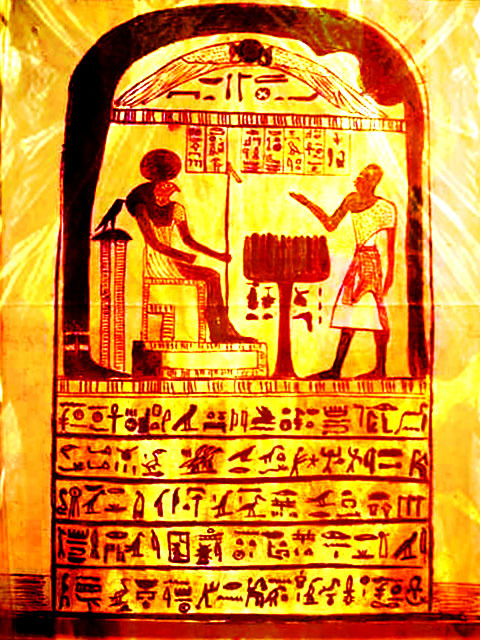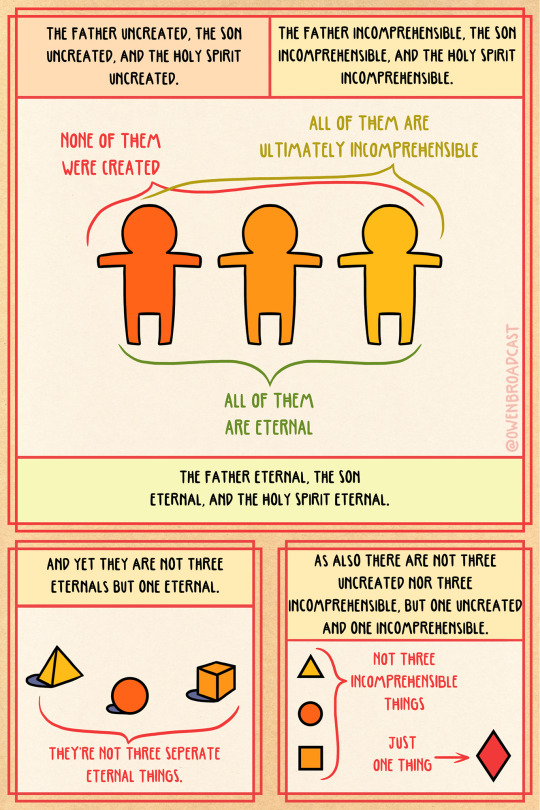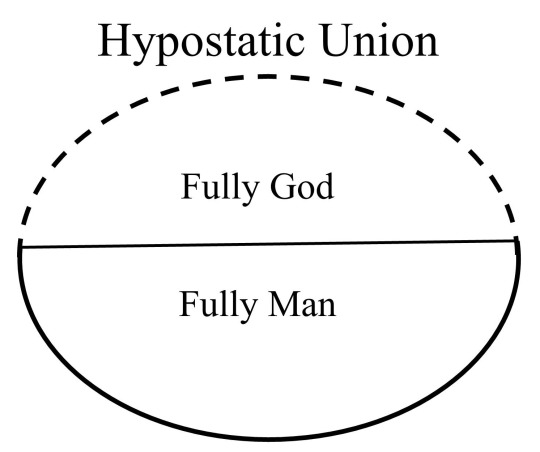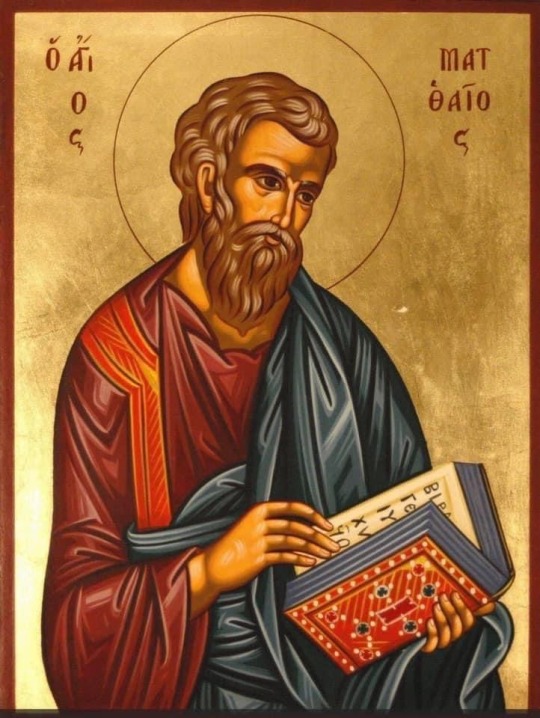#Early Church Theology
Explore tagged Tumblr posts
Text
Love Under Will: An Introduction to Thelema and Its Antecedents
When Aleister Crowley coined the term “the aim of religion, the method of science,” he was advancing the tradition of humanism for the reunion of science and religion into what Eliphas Levi called the catholic or universal religion of humanity. The aim of scientific illuminism is the advancement of uniting these seeming opposites into a fabric whose unit, based on scientific analysis and…

View On WordPress
#Abbey of Theleme#Aeon of Horus#age of Reason#Aleister Crowley#Alphonse Louis Constant#Argentum Astruum#Augustine of Hippo#Bavarian Illuminati#Early Church History#Early Church Theology#Eliphas Levi#Enlightenment era#Francesco Colonna#Francois Rabelais#Freemasonry#Gershem Scholem#greco-egyptian religion#Horus#Humanism#Hypnerotomachia Polyphilo#Isaac Luria#Isis#Karl von Eckhartshausen#Liber Oz#Lurianic Kabbalah#Osiris#Philosophy#Religion#Renaissance era#Renaissance Humanism
1 note
·
View note
Text
today on random languages my brain is going 👀 at is biblical hebrew and biblical greek
#the following tags will have discussions of my faith and christianity in general so if you're not interested in that then stop reading ig#some lore: in my early teens i did consider doing a theology degree at uni and becoming an ordained minister/taking a role in the church#this was before i found out a) in my denomination only men can be ministers (deaconesses exist but yeah) and b) the church as an institutio#is pretty yikes#and then finding out i'm queer and nonbinary threw other spanners in there but despite it all my faith is still so so important to me#i want to start learning about christian/comparative theology more broadly to understand both my own faith and others' better#idk why but today i randomly ended up on the webpage for the theological college in NI and was just looking through the courses they offer#maybe someday in the distant future i'll have the money and time to burn to do an online postgrad degree with them#but yeah they have a postgrad certificate in biblical greek 👀 which looked v cool#the internet is a wonderful place and i found a pretty comprehensive looking biblical hebrew course on youtube and i'd probs be able to fin#biblical greek somewhere if i looked hard enough#greek and hebrew are both such linguistically interesting languages and being able to read some would also help in my theological adventure#so new side quest just dropped ig? at least it's my reading week this week so I can dabble in them with no consequences#i've also been wanting to try and learn a language via an immersion focus - obvs can't do full immersion with biblical greek and hebrew but#yeah using a less grammar and vocab focused approach than i'm used to#i have access to digital bibles so i could just choose a v literal english translation and then try and parse what's happening?#yeah we'll see#langblr#ellis exclaims
21 notes
·
View notes
Photo









today is trinity sunday. the athanasian creed, which ive seen dated from the 6th to 9th centuries, is one of the most standard formal descriptions of the trinity. if youd like to read it for the first time, refresh yourself, or just think about it, i illustrated it here.
136 notes
·
View notes
Text

#side wound summer#side wound#side wound theology#regardless about how various christians feel about trans folks maybe there are greater threats to religious liberty yknow?#the early church didn’t revere st. Marinos as abba marinos and sing about his holy feet#and the medieval church didn’t collectively thirst for Jesus’s menstrual-coded blood#for modern christians to clutch their pearls when there are actual people getting actual persecuted for their religion#I’m sorry I’ve just been a fool and opened Facebook only to see things I’d rather not see#and in irl conversation hear slurs I’d rather not hear
6 notes
·
View notes
Text
Understanding Formal Creed Statements: Its Need in Early Christianity
Explore the need for formal creed statements in early Christianity, addressing false teachings like Gnosticism, Docetism, and Arianism to preserve the true faith of the Church.
In the name of God the Father, Christ Jesus His Son and the Holy Spirit, One True God. Amen. Dear brothers and sisters in Christ Jesus In the previous blog, where we introduced the topic of the Statement of Faith, we learned how the early Christian statement of faith, encapsulated in the Apostles’ Creed and the Nicene Creed, played a pivotal role in defining and uniting Christian belief across…

View On WordPress
#Apostles&039; Creed#Arianism#Christian Doctrine#christian theology#Church Fathers#Docetism#early church history#ecumenical councils#featured#Gnosticism#heresies#Macedonianism#Nestorianism#Nicene Creed#Orthodox faith#Pelagianism#Theological Controversies#Theotokos#Trinity
2 notes
·
View notes
Text
Thinking about going to World Most Boring Bible Study Ever. Idk yall. Idk. Idek.
#the number of times i have faked a call yo leave early. the number of times ive played solitaire on my phone. i got to the potty to kill tim#like! just answer questions its not that hard!!!!!!#you dont even need to be right just throw some spaghetti at the wall and see what sticks!#also group leaders stop reading questions from a script from your phone#ALSO PLEASE CAN WE STOP GOING THROUGH THE SAME VERSES WE GO THROUVH ON SUNDAYS#this is why we have a split in our life group/church crowdm just sayin#i just. i just miss doing bible studys with people who were way smarter than me#being a church kid in a college church is just 👁👄👁#i shpuldnt be dreading going to bible study!!!!!!#so its probably a me problem right?!#and also the group leaders have had to tell me to stfu more than once (politely. which was really annoying. dont pussyfoot around!!)#also our only bible study is also our ~only space for new comers~ so i get in trouble if i get too meaty in my excitements and theology#EHICH SHOJLDNT BE MY FAULT!!!!!!!#and YEAH it IS my fault that its my only spot where im spiritually feeding. but also there is a secret eomens group people mention that..#i guess im just excluded from? but also i know most of the women dont like me bc I have interminable Doesnt Shut Up Disease l#like i understand fhat yes it is a little my fault rhat me talking about deep theology makes them feel inadequate but also THAT SHOULDNT BE#guh. i also forgot my meds today so im a little bit more mulish and hard hearted#and i KNOW its a teachable moment amd God is usimg this to temper me or something else but im feelimg grumblr#and ill probably delete this later.#and i have to got to work ok bye
12 notes
·
View notes
Text
Today the Church remembers the Annunciation of the Incarnation of the Son of God to a young Israelite girl named Maryam (Mary) by the angel Gabriel.
Blessed day on which we remember the astonishing faith of this young girl who said "yes" to bearing the Son of God, becoming pregnant before being wed to her betrothed, when "yes" might have led to her being rejected by her family, shunned by her people, or even being stoned to death. Thank you, blessed one. Because of your faith in the love of God our Savior was born and the universe has been transformed.
Hail Mary, full of grace; the Lord is with thee. Blessed art thou amongst women, and blessed is the fruit of thy womb, Jesus.
Pour your grace into our hearts, O Lord, that we who have known the incarnation of your Son Jesus Christ, announced by an angel to the Virgin Mary, may by his cross and passion be brought to the glory of his resurrection; who lives and reigns with you, in the unity of the Holy Spirit, one God, now and for ever.
Amen.

#father troy beecham#christianity#jesus#saints#god#salvation#faith#early church#new testament#holy trinity#blessed virgin mary#second temple jewish theology
6 notes
·
View notes
Photo
Ok this is going to be the most annoying lengthy comment of all time but I simply must, I’m sorry.
One interesting aspect of this discussion is the implication that fandom’s perspective this represents the shock of the new. However, there are extensive Christian traditions on the particular intimate relationships between Jesus Christ and Judas Iscarriot, Jesus Christ and Peter, and most of all, Jesus Christ and John the Apostle.
In the case of Judas, so much has been speculated and written about the kiss he gives Jesus in the garden of Gethsemane that a “Judas kiss” is its common own phrase, an idiomatic reference to a betrayal under the guise of affection. The event has a commemorative day in both the Western and Eastern Rite liturgical calendars (Spy Wednesday, aka Great and Holy Wednesday). While the Greek word used in the Synoptic gospels (specifically Matthew and Mark) to describe the kiss, καταφιλέω, kataphileó, can be contrasted with a different word, φιλεῖν, philein (typically, horny kidding), and is commonly used for a greeting, that’s not the only way it’s ever been perceived. Thank you to the Wikipedia editor who pointed and sourced that Lutheran theologian Johann Bengel claims that Judas *repeatedly kisses* Jesus, and that it is not just a singular kiss: https://biblehub.com/commentaries/bengel/matthew/26.htm
The additional reference to the use of the same word, καταφιλέω, kataphileó, to describe Alexander the Great kissing the Persian eunuch Bagaos in greeting - something the troops, with whom Bagaos was very popular, apparently demanded - might raise the odd eyebrow, and doesn’t entirely banish the ghost of the erotic from it: https://en.m.wikipedia.org/wiki/Kiss_of_Judas
The nature of the falling-out (friends to enemies to ???) between Judas and Jesus has been written on so much that I wouldn’t know where to begin or end. Flavius Josephus claimed Judas was a founder of the Zealots, a new divergent Jewish philosophy, but Josephus had also fully jumped ship to the Roman cause after his surrender and enslavement, and sought to blame the Roman War of 66–73 CE predominantly on the Zealots: https://en.m.wikipedia.org/wiki/The_Jewish_War
‘Iscarriot’ was not a surname (surnames as now used in the global north were not used by Jews in this era), but likely a reference to the Latin ‘sicarii’, a wielder of a dagger, and/or the Sicarii sub-group of the Zealots, who were well-known as political assassins. Speculation on the falling-out as being primarily political (Judas fed up that Jesus wasn’t acting against Roman rule enough) has been a long tradition, dating largely from Josephus, but it’s not the only one. Suffice it to say, Jesus/Judas and Judas/Jesus have long been implicitly and even explicitly speculated on.
Arguably the far stronger tradition, however, is about Jesus and John the Apostle (as distinct from other Biblical Johns including John the Baptist). Frequently considered to be the subject of the line referring to the “disciple Jesus most loved”, in the Gospel of John, this intimacy was so well-established that by the time James II was getting criticism for his extremely queer relationship with George Villiers, Duke of Buckingham, he famously defended their closeness as confirming to the highest ideals of friends: “as Christ had John, I have George”. More on James, George, and the criminalisation of sodomy here: https://www.port.ac.uk/news-events-and-blogs/blogs/democratic-citizenship/mary-george-homosexual-relationships-in-the-time-of-king-james-i-were-forbidden-but-not-uncommon
Rictor Norton makes reference to it, particularly in ‘Mother Clap’s Molly House’, his well/known history of C18 homosexuality: http://rictornorton.co.uk/eighteen/mother.htm
Detailed interview with Norton here (note that he has a tendency to be rather antagonistic towards bisexuality): https://notchesblog.com/2022/05/07/an-interview-with-historian-rictor-norton/
A fascinating historical coincidence maybe, but an account of a C17 same-sex marriage ceremony took place at the church of San Giovanni a Porta Latina “Saint John Before the Latin Gate". This church was dedicated to John the Evangelist, author of the Gospel of John and frequently identified as…John the Apostle. More in this book: https://notchesblog.com/2017/01/19/same-sex-marriage-in-renaissance-rome/
The Jesus/John relationship (no dynamics implied) was so well-established within the culture of early modernity that this only strengthened that reading. John Boswell made reference to it in his final and seminal (though also criticised) book, ‘The Marriage of Likeness’ : https://en.m.wikipedia.org/wiki/Same-Sex_Unions_in_Pre-Modern_Europe
More on his analysis here: https://www.independent.co.uk/news/gay-marriages-centuries-old-1570056.html
To this very day, the queer possibility of John/Jesus remains of keen interest to LGBTQIA and progressive Christians, and pops up quite frequently: https://amp.theguardian.com/commentisfree/belief/2012/apr/20/was-jesus-gay-probably
The TLDR of this interminable comment is probably: the established shipping wars of Christianity long predate us, so yeah why not make the boys of 1st century CE Judea kiss? That “Jesus FUCKS” tag isn’t blasphemy, it’s ~theology.

sometimes i’m like ‘fanfiction can’t shock me anymore i’m numb to it’ then i find this shit
#jesus discourse#the early church#biblical history#theology#‘christ had john and i have george’#rictor norton#John Boswell#mother claps molly house#the marriage of likeness#same sex marriage in renaissance Rome
216K notes
·
View notes
Text
The Significance of John's Gospel for Jewish Believers. An Overview.
Having heard the theological breakdowns of John’s gospel, I am acknowledging that these portrayals are most assuredly there. However, all those word pictures seem to do little for me as I am always taken back by the power and depth of this introduction “In the beginning was the Word, and the Word was with God, and the Word was God.” Sadly, most of us do not grasp what is being said here; it is…
#apologetics#beginning#Belief#Bible#Christ#converts#early church#false teaching#God#Jewish#Jews#made#nothing#replacement theology#Scripture#the Word#with God
0 notes
Text
The Significance of John's Gospel for Jewish Believers. An Overview.
Having heard the theological breakdowns of John’s gospel, I am acknowledging that these portrayals are most assuredly there. However, all those word pictures seem to do little for me as I am always taken back by the power and depth of this introduction “In the beginning was the Word, and the Word was with God, and the Word was God.” Sadly, most of us do not grasp what is being said here; it is…
#apologetics#beginning#Belief#Bible#Christ#converts#early church#false teaching#God#Jewish#Jews#made#nothing#replacement theology#Scripture#the Word#with God
0 notes
Text
Responding to Tom Knoff: Early Church Councils, Scripture, and Apostolic Authority Through a Latter-day Saint Lens
Tom Knoff’s article highlights a pressing issue: how the early Church councils inform our ability to face today’s theological challenges. Drawing from the councils at Nicaea and Constantinople, he argues that their reliance on scripture and precise doctrine was central to confronting heresies like Arianism. The Church has long faced challenges in clarifying and defending the person and nature of…
#Apostolic authority restoration#Apostolic authority vs. ecclesiastical authority in church history#Bible#Biblical arguments for restored priesthood authority#Biblical truth and revelation#Challenges to creedal Christianity#Christianity#Church of Jesus Christ modern-day teachings#Continuing revelation in the Church of Jesus Christ#Council of Nicaea doctrinal analysis#Defending the LDS faith against criticisms#Differences between LDS beliefs and traditional Christian creeds#Distinct LDS beliefs about God#Early church councils and their impact on Christian theology#faith#Great Apostasy explained#Hellenistic philosophy and theology#Historical analysis of Christian councils#How Latter-day Saints respond to theological challenges#How the Council of Nicaea shaped Christian doctrine#How the restoration of priesthood authority clarifies doctrinal truths#Jesus#Joseph Smith and restoration of truth#Latter-day Saint apologetics#LDS apologetics and early church history#LDS approach to theological debates#LDS defense of the Godhead#LDS explanation of the Great Apostasy and restoration#LDS interpretation of biblical teachings#LDS perspective on early church councils
1 note
·
View note
Text
When Christianity Became the Empire: A Reflection on Faith, Power, and Deception
Throughout history, the story of Christianity has been one of profound transformation. From its humble beginnings as a faith centered on the teachings of Jesus—a man who preached love, forgiveness, and non-violence—Christianity evolved into a powerful institution, closely tied to the machinery of empire. This evolution raises important questions about the nature of faith, power, and the dangers…
#biblical warnings#Christ’s message#Christian deception#Christian ethics#Christian history#Christian pacifism#Christian theology#christianity#church and state#church history#Constantine#early Christians#faith and power#false prophets#history of Christianity#Jesus teachings#non-violence in Christianity#Roman Empire#spiritual reflection#state religion
0 notes
Text
The God-Man: Understanding the Deity and Humanity of Jesus
At a point in time, the eternal Son of God added humanity to Himself, simultaneously becoming God and man, Creator and creature, the unique theanthropic person (John 1:1, 14, 18; 8:58; 10:33; 20:28; Col 2:9; Heb 1:8). Jesus is the God-man and exists in hypostatic union, as a single Person with a divine and human nature (John 1:1, 14; 1 John 4:2-3), both natures being distinct and preserved, not…

View On WordPress
#Biblical Christology#Biblical Teaching#Biblical theology#Chalcedonian Council#Christian apologetics#Christian doctrine#Christian Faith and Practice#Christian History#Christian Theological Controversies#Christian theology#Christological Understanding#christotokos#Council of Chalcedon#Councils of the Church#Deity of Jesus#Divine Incarnation#Divine nature#Divinity and Humanity#Doctrine of Jesus#Early Christian Theology#Faith and Belief#Human Nature#Humanity of Jesus#hypostatic union#Incarnation#Jesus#Jesus Christ#Jesus is Messiah#Jesus is the Jewish Messiah#Jesus is the Savior
0 notes
Text
Defending the Divinity of Christ: The Church's Battle Against Arianism - Part 4
Discover how the early Church defended the divinity of Christ against Arianism. Learn about Arian beliefs, the Nicene Creed, and key Church Fathers who safeguarded orthodox Christian doctrine.
In the name of God the Father, Christ Jesus His Son, and the Holy Spirit, One True God. Amen. Dear brothers and sisters in Christ Jesus In the previous blog, we delved into the early heretical movement of Gnosticism, a significant threat to early Christian doctrine. Gnosticism’s emphasis on secret knowledge, dualism, and a distinct interpretation of Christ’s nature prompted the Church to…

View On WordPress
#Arian controversy#Arianism#Athanasius#Christian creeds#Christian heresies#Christian orthodoxy#Christian theology.#Church councils#Church Fathers#Council of Nicaea#divinity of Christ#early Christianity#early church history#featured#Nicene Creed#orthodox Christian doctrine#Orthodox faith#role of Church Fathers#Statement of Faith#theological debates#Trinitarian theology
0 notes
Text
Saturday Worship: A Sabbath Stuck in Time or a Day of Divine Delight?
Early Christian practise saw a dramatic change as it transitioned from Sabbath observance to Lord’s Day observance. This blog examines the historical and theological aspects of this change, offering light on the discussions and interpretations around it. Background information: The early Christian communities included both Jewish and Gentile believers, necessitating a close investigation of…

View On WordPress
#Brendon Naicker#Bristol church#Christian worship#Churches Unite#controversies#Early Christianity#eschatological significance#historical transition#Jewish and Gentile believers#joburg church#legalism#London City Church#Lord&039;s Day#practical considerations#Sabbath observance#Saturday worship#theological justifications#Theology#Theology School
0 notes
Text
Today, the Church honors St. Matthew, Apostle and Evangelist.
Ora pro nobis.
Matthew the Apostle (also known as Levi) was, according to the Bible, one of the twelve apostles of Jesus and, according to Christian tradition, one of the four Gospel writers (Evangelists). Among the early followers and apostles of Jesus, Matthew is mentioned in Matthew 9:9 and Matthew 10:3 as a publican, or tax collector, who, while sitting at the "receipt of custom" in Capernaum, was called to follow Jesus. He is also listed among the twelve, but without identification of his background, in Mark 3:18, Luke 6:15 and Acts 1:13. In passages parallel to Matthew 9:9, both Mark 2:14 and Luke 5:27 describe Jesus' calling of the tax collector Levi, the son of Alphaeus, but Mark and Luke never explicitly equate this Levi with the Matthew named as one of the twelve.
We do not know much with certainty about Matthew himself beyond what is mentioned in the Scriptures. He was born some time in the 1st c. AD, probably in Galilee, and was the son of Alpheus. As a tax collector he would have had to have been literate in Hebrew Aramaic, Latin, and Greek. His fellow Jews would have despised him, and all tax collectors, for what was seen as collaborating with the Roman occupation force and being therefore a traitor.
According to the Gospel, Matthew was working at a collection booth in Capernaum when Christ came to him and asked, "Follow me." With this simple call, Matthew became a disciple of Christ. After his call, Matthew invited Jesus home for a feast. On seeing this, the Scribes and the Pharisees criticized Jesus for eating with tax collectors and sinners. This prompted Jesus to answer, "I came not to call the righteous, but sinners to repentance." (Mark 2:17, Luke 5:32)
The New Testament records that as a disciple, he followed Jesus, and was one of the witnesses of the Resurrection and the Ascension of Jesus. Afterwards, the disciples withdrew to an upper room (Acts 1:10–14) (traditionally the Cenacle) in Jerusalem to await the outpouring of the Holy Spirit, after which the disciples remained in and about Jerusalem and proclaimed that Jesus was the promised Messiah, and performed many miracles. The Scriptures record that many came to the Faith, including a large number of priests.
In the Babylonian Talmud (Sanhedrin 43a) "Mattai" (a nickname for Matthew in Hebrew Aramaic) is named as one of five disciples of "Jeshu". Later Church fathers such as Irenaeus (Against Heresies 3.1.1) and Clement of Alexandria claim that Matthew preached the Gospel to the Jewish community in Judea, before going to other countries. Ancient writers are not agreed as to what these other countries are. The Roman Catholic Church and the Orthodox Church each hold the tradition that Matthew died as a martyr. The Babylonian Talmud appears to report his execution in Sanhedrin 43a.
According to Church tradition, while preaching in Ethiopia, Matthew converted, and then consecrated to God, Ephigenia of Ethiopia, the virgin daughter of the Aethiopian King Egippus. When King Hirtacus succeeded Egippus, he asked the apostle if he could persuade Ephigenia, his neice, to marry him. Matthew thus invited King Hirtacus to a worship service the following Sunday where he rebuked the king for lusting after the girl, as had consecrated herself to God and therefore was the bride of Christ. The enraged King ordered his bodyguard to kill Matthew who stood at the altar, making him a martyr.
Early Church tradition holds that the Gospel of Matthew was written by the apostle Matthew, sometime between AD 40-51. This tradition is first attested, among the extant writings of the first and second centuries, with the early Christian bishop Papias of Hierapolis (c. AD 60–163), who is cited by the Church historian Eusebius (AD 260–340), as follows:
"Matthew collected the sayings of or about Jesus in the Hebrew Aramaic language, and each one interpreted them as best he could." Likewise, early Christian theologian Origen (c. 184–c. 253) indicates that the first gospel was written by Matthew, and that his gospel was composed in Hebrew Aramaic near Jerusalem for Hebrew Christians, which he then translated it into Greek. The Hebrew Aramaic original was kept at the Library of Caesarea. Sometime in the late fourth or early fifth century, the Nazarene Community transcribed a copy for Jerome, which he used in his work. This Gospel was called the Gospel according to the Hebrews or sometimes the Gospel of the Apostles, and it was once believed that it was the original to the 'Greek Matthew' found in the Bible.
We thank you, heavenly Father, for the witness of your apostle and evangelist Matthew to the Gospel of your Son our Savior, Jesus; and we pray that, after his example, we may with ready wills and hearts obey the calling of our Lord to follow him; through the same Jesus Christ our Lord, who lives and reigns with you and the Holy Spirit, one God, now and forever.
Amen.

#father troy beecham#christianity#jesus#god#saints#salvation#peace#martyrs#faith#early church#new testament#second temple Judaism#second temple jewish theology#evangelist#Gospel
4 notes
·
View notes